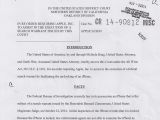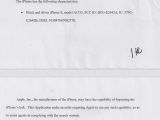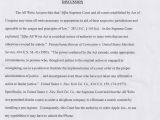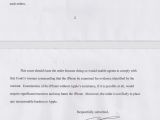The feds are twisting Apple’s arm in a California case where a detained iPhone is believed to hold vital clues that are key to solving an investigation. Apple has embedded new security measures in its iPhones to make it even harder than before to unlock an iDevice without the users’ consent.
The suspect (of which we aren’t told if he / she is in custody) is the only person capable of unlocking their device with their Apple ID and password. Apple may or may not have the necessary means to bypass these requirements, but the Department of Justice certainly believes it does.
What the papers say
Citing the All Writs law, a couple of US attorneys are asking of Apple to assist in the execution of a search warrant by unlocking an iPhone. According to the court papers, “the Federal Bureau of Investigation currently has in its possession an iPhone that is the subject of a search warrant issued by the Honorable Bernard Zimmerman, United States Magistrate Judge, on October 24, 2014.”
Initial inspection of the device revealed that it was locked. Law enforcement was not able to examine its contents “as commanded by the search warrant.” The device is an iPhone 5s model.
United States attorneys Melinda Haag and Garth Hire claim that Apple, being the manufacturer of the device in question, “may have the capability of bypassing the iPhone’s lock.” The papers actually seek an order from the judge requiring the company to do so. The two lawyers also firmly believe that the FBI would need to invest unjustified amounts of resources and energy to hack into the phone, and that this order would not place any unusual burden on Apple.
What does this tell us?
The news, as concerning as it may sound, is actually good for a plurality of reasons. First off, this indicates that Apple is indeed serious about not tampering with its customers’ privacy. People are big on that, no matter how frustrating this can be to law enforcement.
Secondly, this tells us that iPhones are rock solid devices that are truly safeguarded by our Touch ID fingerprints and / or Apple IDs. Heck, if the FBI can’t break inside it, chances are no one else can.
There’s also the matter of the FBI being right in this particular case. If what it has is almost certainly a device that’s holding incriminatory evidence, then Apple will most likely have to comply. Which is certainly preferable if, say, information about your kidnapped children happens to be found on one such device.
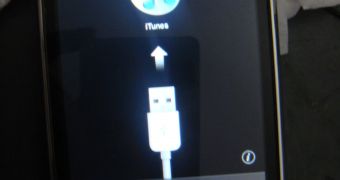
 14 DAY TRIAL //
14 DAY TRIAL // 
